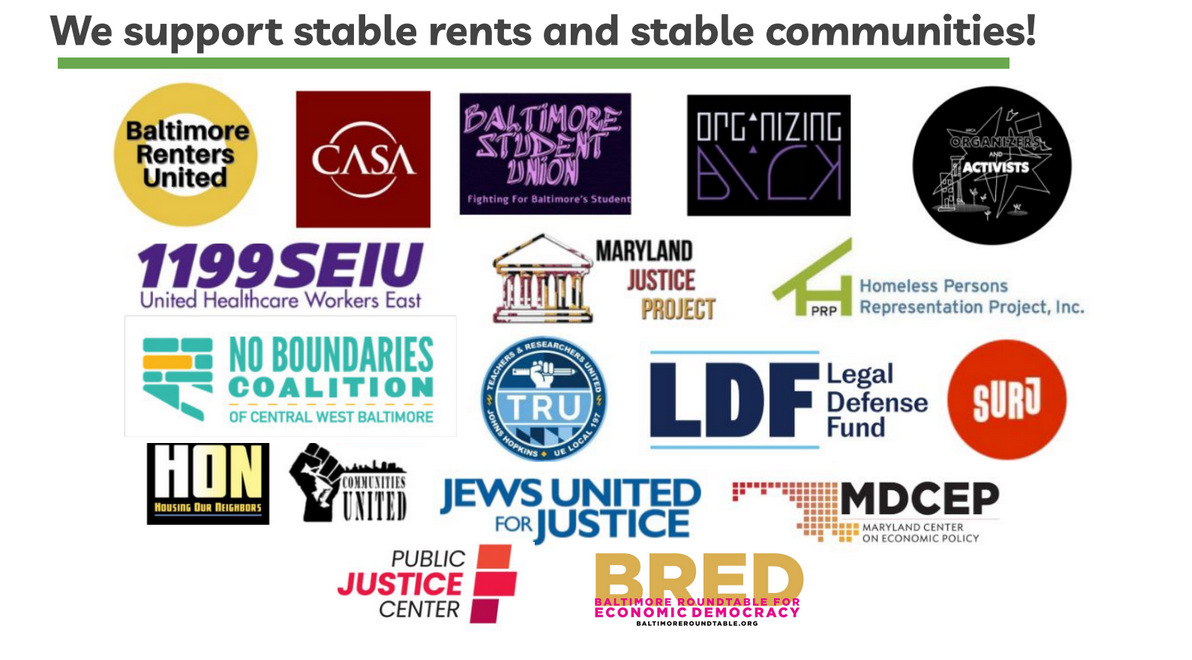Rent Stabilization
We’re seeing rent stabilization passed in counties across Maryland, and the people of Baltimore are ready to join the fight! BRU has begun planning a rent stabilization campaign and we’re inviting all the tenants in Baltimore City to join us!
Whether homeowner or renter - across race, class, and zip code - all of us deserve the chance to put down roots in our communities.
Unfortunately, Black and Latine households have been subjected to egregious rent spikes that are pushing our neighbors out of our communities. Predatory rent spikes are a racial justice issue, and we can stop them by passing rent stabilization!
Rent stabilization is a smart and targeted policy to protect tenants from unreasonable rent spikes. It accounts for the operating expenses of landlords and is cost-effective for our city. Let's rewrite outdated and unfair rules so they work for the people of Baltimore!
How Can I Get Involved?
Baltimore City was among the many Maryland jurisdictions that limited rent increases at the outset of the COVID-19 pandemic. Many jurisdictions in Maryland have made rent stabilization permanent. We believe a limit on annual rent increases should be codified in Baltimore City as a permanent law. Click the link below to view our policy position and sign on expressing your support for the campaign:
BRU would like to hear your voice about how we can work together to make housing affordable in Baltimore by fighting for rent stabilization. If you’re a tenant and you’d like to get involved, please take a few minutes to fill out our rent stabilization survey and let us know what your experience has been like and what you’d like to see in Baltimore City’s future. There’s a section at the end to put in your contact information to get involved in our campaign!


